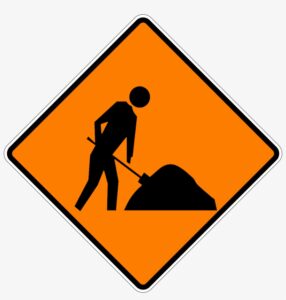As a small business owner, knowing that having an online presence is crucial for success is essential. And when it comes to online visibility, search engine optimisation (SEO) plays a key role. However, measuring SEO success can be tricky, especially if you need to familiarise yourself with the metrics to track. Don’t worry; this blog post will discuss the key metrics that small businesses should monitor to measure their SEO success.
The first question on every small business owner’s mind is – how much does SEO cost? There are options for affordable SEO for small business available in the market today. Focusing on what works while being cost-effective and setting achievable goals regarding ranking progress is important.
Keyword Rankings
Regarding tracking your SEO results, keyword rankings should be your starting point. Keyword rankings provide insights into your website’s performance in search results for targeted keywords or phrases related to your industry or niche.
There are many tools available that can help you track your keyword rankings across different search engines like Google, Bing, or Yahoo! Keep in mind that these rankings fluctuate significantly as major players in this space frequently change their algorithms and priorities when ranking content based on relevance and user experience rather than technical page insight.
Traffic
Tracking traffic from organic searches is another crucial metric that helps you determine whether or not your optimisation efforts are yielding results. You want traffic from relevant searches, so ensure the keywords correspond directly to what’s offered at your SMB.
Watch out for spammy domains/bots as visitors since they will significantly impact pure web analytics numbers but won’t provide any value towards sales conversions, leads, ROI, etc. To measure organic traffic, closely examine monthly clicks from non-brand keywords to see if there has been progress over time.
Conversion Rates
While attracting visitors through organic search results is excellent news, it doesn’t guarantee conversions over time. The conversion rate metric tracks the proportion of visitors who take action on your site, making it a key indicator of how profitable your SEO efforts are in earning money.
Conversion rates differ from business to business; for some SMBs, a conversion may be a sign-up form filled out by prospective clients, while for others, purchases are the ultimate goal (or at least one of them). Working on increasing numbers in other indicators, such as average session duration, will help build brand awareness and trust and guide people into longer-term conversions.
Bounce Rate
The bounce rate determines if users have found what they were looking for once they arrive at your website. A high bounce rate indicates that visitors aren’t satisfied with what’s offered upon accessing the site. In contrast, low bounce rates can quickly indicate high interest or satisfaction levels compared to expectations.
Having viewers leave quickly may be caused by poor user experience metrics (such as hard-to-use navigation features), poor web design, or a lack of optimisation for a mobile-friendly version.
Inbound Links
Another factor contributing to page insight related to SEO results is inbound links, also known as “backlinks.” These count as “votes” that endorse the credibility and authority of your content when reliable sources refer back to already published information, allowing for a larger reach and the ability to influence purchasing decisions while cultivating trustworthiness online.
For small businesses to successfully track linking patterns and relationships, Google Analytics will provide clues about where these inbound links come from. Ensure that all backlinks coming into the site are of decent quality since negative or spammy ones will damage or reduce optimisation efforts, especially in today’s landscape. This falls under black hat techniques, which are frowned upon when identified by new-age algorithms powered by deep learning machine intelligence that regularly analyse content.
Wrapping Up
Appropriate measures help measure success within any organisation, whether small businesses or large ones navigating through changing times. Setting achievable yet challenging targets for SEO or any other large-scale projects allows progress to be shown with clearly derived data and creates confidence within leadership strategy development. These evolved metrics allow businesses to study competitor analysis, stay ahead of industry trends, and gauge how they measure up against the competition, taking into account demographic insights, geographical targeting, etc.
Implementing proper benchmarks along with periodic evaluations has proven extremely effective for small businesses to track return on investment, providing an overall index for creating digital assets that enhance customer experience and improve personalisation and overall branding campaigns, leading to improved click-through rates (CTR) and ultimately forming happy customers who become long-term patrons, recommending your services/products and boosting long-term revenues.


Average Rating